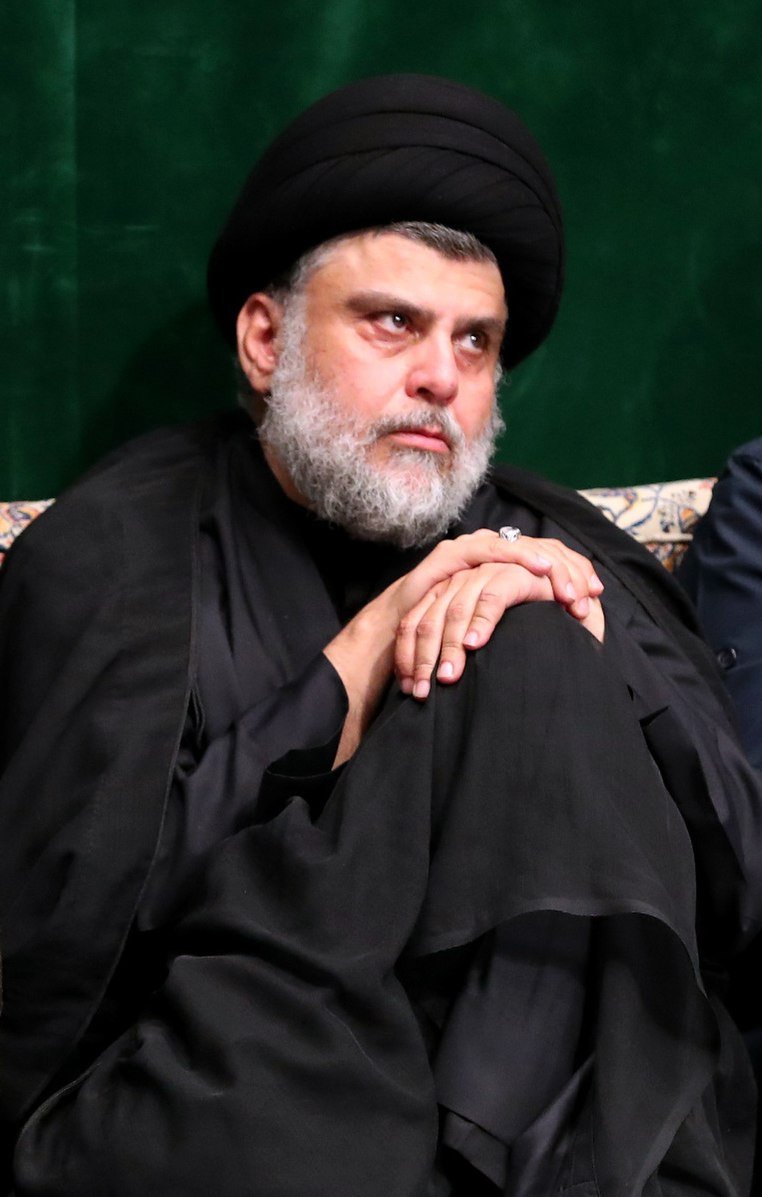Populist Party Sees Large Gains in Iraqi Elections
Muqtada al-Sadr, leader of the Sadrist Movement, the biggest party in parliament (Wikipedia)
Shia Muslim scholar and politician Muqtada al-Sadr led his populist party to victory in the Iraqi parliamentary elections on October 10, winning the most seats in the national legislature.
His Sadrist Movement party combines elements of religion and populism, and it now holds 73 spots in parliament after the latest election.
This event continues a trend of Shia Muslims dominating national elections in the aftermath of the U.S.-led 2003 Iraq invasion, with the current Iraqi prime minister Nouri al-Maliki also identifying as a Shiite. The results also improve on al-Sadr’s performance in the previous elections of 2018, where his party won 54 seats in the final count.
Al-Sadr is renowned for his controversial political views, namely his opposition to all foreign interference in Iraq, including interference from both the United States and neighboring Iran. As a result of his party’s historically strong turnout in national elections, al-Sadr wields significant influence in determining who will constitute Iraq’s next ruling coalition.
The elections also came against the backdrop of massive protests beginning in Iraq in 2019. These protests included demonstrations against the U.S. occupation, Iranian influence, corruption in the government, and poor economic conditions, among other grievances. Many Iraqi youth also participated in the protests. However, the most recent polls reported a low voter turnout—approximately 41 percent—suggesting that faith in the people’s ability to reform Iraq’s political system remains low. “It’s not worth it,” 20-year old Iraqi Hussein Sabah stated. According to him, he chose not to participate in this year’s election because “there’s nothing that would benefit [him] or others.”
While al-Sadr’s party made gains in the October parliamentary election, several other political parties with links to Iran experienced setbacks. The Fateh Alliance, for instance, is projected to lose its status as the second-largest political party in Iraq, holding just 14 seats compared to their former 48 seats. Along with others, the Fateh Alliance denounced the election results as fabricated and rigged, appealing against the results and citing voter manipulation.
While the results of the election are almost complete, it may still take a while for a new governing coalition to form. Historically, Iraqi political parties spend months negotiating and haggling to determine the composition of ministerial appointments as well as the next prime minister of Iraq. Until then, only time will tell what al-Sadr’s win will mean for Iraq’s internal and regional political stability.

